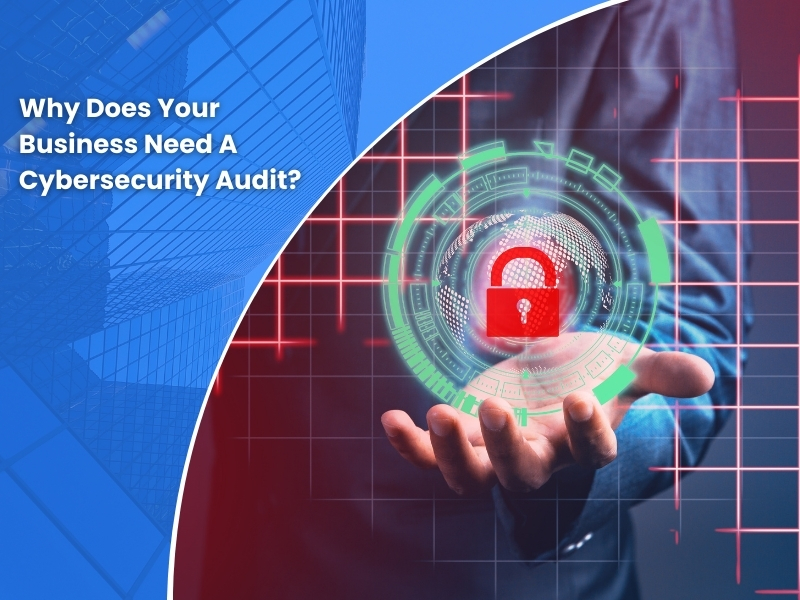With cyber threats becoming more sophisticated, safeguarding your business data is more crucial than ever. A cybersecurity audit is essential to ensure your business’s digital safety. This article explores the importance of cybersecurity audits, highlighting how they protect your business, mitigate risks, and enhance your overall security posture.
What is a cybersecurity audit, and how can it benefit your business?
A cybersecurity audit comprehensively assesses your organisation’s digital security measures. This process evaluates existing policies, procedures, and technologies to identify vulnerabilities and areas for improvement. Here are some key benefits of conducting a cybersecurity audit:
- Risk identification: Uncover hidden vulnerabilities that may expose your business to cyber threats.
- Compliance assurance: Ensure that your business meets industry standards and regulatory requirements.
- Strengthened policies: Develop robust security policies tailored to your specific business needs.
- Informed decision-making: Use audit findings to make strategic investments in security technologies.
- Increased awareness: Foster a culture of security awareness among employees.
How can a cybersecurity audit protect your business data?
Data protection is a primary concern for businesses of all sizes. A cybersecurity audit helps identify and address potential threats to your sensitive information. Here’s how it can bolster your data protection:
- Access controls: Evaluate user access levels to sensitive data and ensure proper controls are in place.
- Encryption practices: Assess the effectiveness of data encryption methods for storing and transmitting information.
- Incident response plans: Review your strategies to ensure prompt action during a data breach.
- Backup solutions: Examine your data backup and recovery processes to ensure quick data restoration after a breach.
- Network security: Identify weaknesses in your network security that could lead to data loss.
Is your business protected against the latest cyber threats?
Cyber threats evolve rapidly, and your security measures must keep pace. To effectively protect your business from cyber threats, develop a comprehensive cybersecurity policy that outlines clear guidelines for employees, addresses potential vulnerabilities, and ensures compliance with industry regulations. Here’s what it examines:

- Malware protection: Ensure effective malware detection and prevention tools are in place.
- Firewall effectiveness: Evaluate the configuration and effectiveness of your firewall settings.
- Intrusion detection systems: Assess the capabilities of intrusion detection systems to monitor suspicious activity.
- Phishing awareness: Review employee training on recognising phishing attempts and other social engineering tactics.
- Patch management: Ensure your systems and applications have the latest security patches.
Can a cybersecurity audit help prevent costly data breaches?
Data breaches can lead to severe financial repercussions, making it vital to prevent them. Here’s how a cybersecurity audit helps in this regard:
- Early detection: Identify vulnerabilities before attackers can exploit them.
- Cost savings: Prevent potential financial losses associated with data breaches, such as fines and legal fees.
- Reputation protection: Maintain customer trust by demonstrating your commitment to data security.
- Insurance benefits: Improve your chances of lower cyber insurance premiums by demonstrating a proactive approach to security.
- Enhanced recovery: Develop a more effective incident response plan to reduce downtime and recovery costs in case of a breach.
Is your network secure from external and internal threats?
A comprehensive cybersecurity audit evaluates your network’s resilience against external and internal threats. Here’s how it enhances network security:
- Vulnerability scanning: Identify and address vulnerabilities in your network infrastructure.
- User activity monitoring: Implement monitoring tools to detect unusual internal user activities.
- Physical security: Evaluate the physical security measures protecting your network hardware.
- Segmentation strategies: Assess whether your network segmentation is adequate to limit access to sensitive areas.
- Remote access controls: Ensure secure remote access protocols to prevent unauthorised access.
What are the benefits of regular cybersecurity audits?
Regular audits are essential to maintain a robust cybersecurity posture. Here are some benefits of scheduling audits consistently:
- Continuous improvement: Regular assessments ensure your security measures evolve with emerging threats.
- Proactive risk management: Detect and mitigate risks before they escalate into significant issues.
- Staff accountability: Encourage employees to adhere to security policies and procedures.
- Enhanced compliance: Stay compliant with regulations and industry standards through periodic reviews.
- Optimised resources: Allocate resources more effectively based on audit findings and risk assessments.

How often should your business perform a cybersecurity audit?
The frequency of cybersecurity audits can vary based on your business size and risk exposure. Here are some guidelines to consider:
- Annual audits: Most businesses should conduct at least one comprehensive yearly audit.
- Quarterly reviews: High-risk industries or those handling sensitive data may benefit from quarterly audits.
- Post-Incident assessments: Conduct audits after any significant security incident to evaluate vulnerabilities.
- Change-based audits: Perform audits whenever you implement new technologies or processes.
- Regulatory requirements: Follow any specific regulations that may dictate the frequency of audits.
How can you choose the right IT service provider for a cybersecurity audit?
Choosing the right IT service provider for your cybersecurity audit is crucial. Here’s how to make an informed decision:
- Experience and expertise: Look for providers with a proven track record in cybersecurity audits.
- Comprehensive services: Ensure they offer a full range of IT security services tailored to your business needs.
- Client testimonials: Check reviews and testimonials from previous clients to gauge their satisfaction.
- Local support: Choose a provider that understands the local market and can offer on-site support when necessary.
- Customised solutions: Opt for a provider that offers tailored solutions rather than a one-size-fits-all approach.
What steps should you take after a cybersecurity audit?
Once the audit is complete, follow these steps to maximise its benefits:
- Review findings: Thoroughly assess the audit report and understand the identified vulnerabilities.
- Prioritise actions: Develop a plan to address the most critical vulnerabilities first.
- Implement changes: Make necessary changes to policies, procedures, and technologies as recommended.
- Employee training: Conduct training sessions to ensure staff understand new security measures.
- Schedule follow-up audits: Plan for follow-up audits to track progress and ensure ongoing compliance.
Safeguard your data and reputation!
Ensure your business stays secure with a thorough cybersecurity risk assessment from Kangaroo IT. Our skilled team in Sydney understands the unique challenges businesses face and is committed to providing personalised solutions. Don’t leave your data vulnerable—trust Kangaroo IT for your cybersecurity needs.

